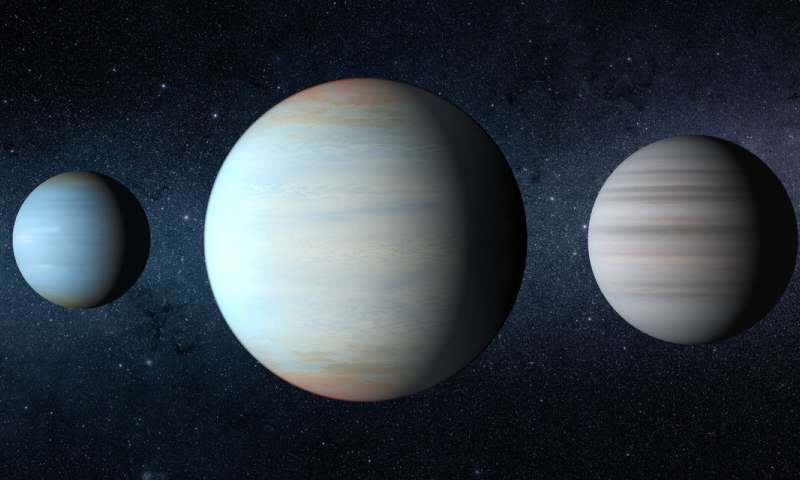New Exoplanet Found In The Kepler-47 Binary Star System

Current studies published in The Astronomical journal reported an exciting discovery regarding Kepler-47, the only known multiplanet binary star system. Kepler-47d, as it was named, is the newly discovered exoplanet that lies 3,340 light-years from Earth, along with its formerly found siblings, Kepler-47b and Kepler-47c. The three of them orbit around a G-type main sequence star and a red dwarf star.
Reports have also revealed that the latest discovery is the biggest planet in the system, which was the main shock for everyone. The discovery of the other two planets in the system was announced back in 2012. Since they are circling two stars, the two worlds both have two suns in the sky, much like Luke Skywalker’s home planet of Tattooine in the Star Wars universe.
Their discovery was made using the most prolific planet hunter of all times, NASA’s Kepler space telescope, which sadly stopped working this past fall.
Scientists spotted a new exoplanet in Kepler-47 binary star system
The newly announced Kepler-47d is about seven times the size of Earth, noticeably larger than Kepler-47b and c, which are 3.1 and, respectively, 4.7 times wider than our planet.
Kepler-47d’s orbital period is 87 Earth days, while its siblings complete one lap around the circumbinary system every 49 days, for Kepler-47b, and 303 days for Kepler-47c. Therefore, the last discovered planet stands between the other two, which was also a big surprise for researchers. The trio’s average temperatures are thought to be about -26 degrees Fahrenheit and, assuming they are all native to the system, have survived for about 3.5 billion years.
The paper also reinforces one of Kepler’s most exciting discoveries: that systems of tightly packed, low-density planets are widespread in our galaxy, as Jonathan Fortney, who was not part of the research team, stated. He also added that “Kepler-47 shows that whatever process forms these planets — an outcome that did not happen in our solar system — is common to single-star and circumbinary planetary systems.”
0 comments